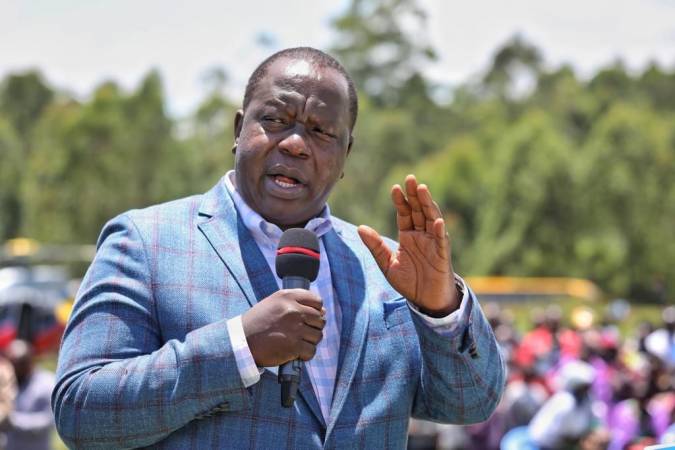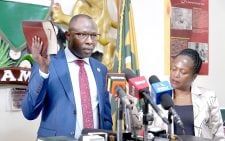Matiang’i: Bribery of voters, social media abuse threat to peace

Voter bribery, hooliganism, intimidation of voters, and abuse of social media are some of the threats the government is dealing with in the electioneering period.
Interior Cabinet Secretary Fred Matiang’i yesterday said there was rising abuse of social media platforms such as Facebook, Twitter, WhatsApp and blogs in propagating misinformation.
He also identified the worsening drought and food situation, ideological differences and ethno-political mobilisation as potential threats.
Others are the misuse of boda boda operators by politicians, money laundering, terrorism, organised criminal gangs, land and boundary disputes and cattle rustling.
“The vitriol and hate speech and incitement on social media is on the rise at political campaigns and is compounded by propaganda and fake news,” he said adding that they had, however, strengthened media monitoring and investigation of hate speech.
He, however, pledged that the government will not shut down the Internet before and after the General Election.
The CS also warned that violence against women candidates will not be tolerated.
“We have put in place plans to enhance the protection of electoral workers and the security of women candidates during the electioneering period,” Matiang’i said.
He was speaking during a meeting of senior government officials and the Anglican bishops led by Archbishop Jackson Ole Sapit.
Pulpit misuse
Matiang’i urged the church to speak against the misuse of the pulpit by politicians.
“The ACK leadership has remained firm against politics at church services and misuse of the pulpit. I thank the ACK for this firm stand,” he said.
He further urged the church to continue to provide civic education that will enable citizens to make informed decisions in the selection of their leaders for the next five years and even make them accountable after assuming office.
ICT Cabinet Secretary Joe Mucheru said the right infrastructure was in place for the electoral body to conduct the elections.
Unlike in 2017 when 78 per cent of the country was covered by the 4G network, the CS said, currently it is at 96.4 per cent
“Our responsibility is on the technology side. We do not conduct elections and we do not have access to the servers. Ours is to create an environment that will allow the IEBC to conduct elections in a way that is secure,” Mucheru said.
Last week, the ministry launched the 4G network in West Pokot that now has 400,000 people covered.
Police recruitment
The Inspector General of Police Hillary Mutyambai said the police were prepared to offer security during the general election.
“Since the party primaries began and especially during Easter holidays, the country recorded very few crimes including traffic accidents,” he said
Mutyambai said they were aware that there were opportunists and other criminals who intend to capitalise on the elections to commit crimes but warned that the police were ready for them.
Since 2017, the Kenya Police Service has recruited 20,300 more police officers and 2,500 police reservists, making the per capita ratio of police to citizens beyond the UN standards.
Matiang’i said the government had put a number of measures in place to ensure that elections are conducted successfully.
“The National Multi-Agency Consultative Forum on Election Preparedness chaired by the Honourable Chief Justice has also been formulated,” he said.















